This “Texas Pile” set lured us into a fried chicken shop for the first time, and we have no regrets
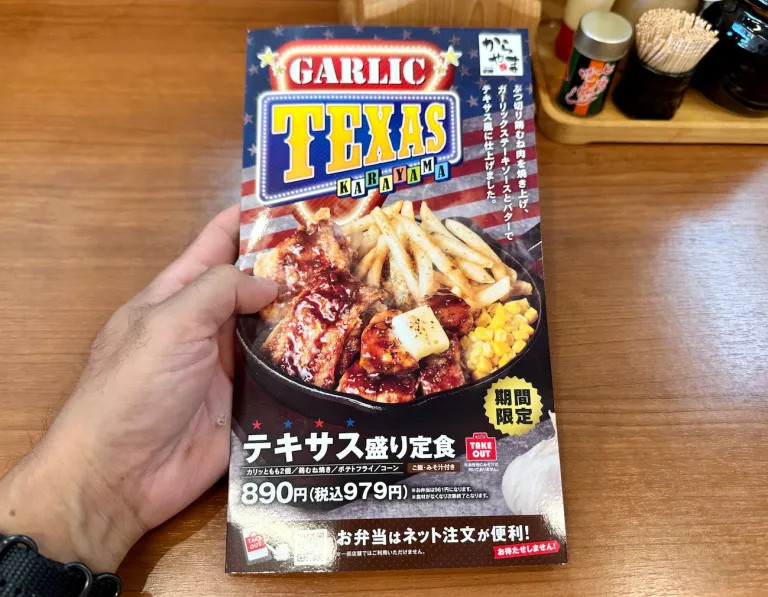
Big food, big flavor, big satisfaction…We’ll be headed to this restaurant again!
Our Japanese-language reporter Masanuki Sunakoma happened to be diving by Karayama, a karaage fried chicken specialty restaurant, when a sign for “Garlic Texas Karayama” caught his eye. This was unfortunate (or possibly fortunate?) timing, because Masanuki happened to be hungry at the time, and the words “garlic” and “Texas” drew him like a moth to flame.
He parked his car in the parking lot, walked inside, sat down at the end of the counter seating, and ordered the Texas Mori (Texas Pile) Teishoku (979 yen [US$6.84]), as if he’d been a lifelong customer. That was strange because it was the first time he’d ever stepped foot in a Karayama. But just ten minutes later, Masanuki’s first-ever dining experience there would change his life forever.
While he waited, Masanuki did some snooping. It turns out that Karayama is part of the same string of businesses as Katsuya, which has produced crazy dishes like Tonkotsu Ramen Rice Bowls and Cold Katsu Soba. This leveled up his excitement; there was no way Karayama’s food wouldn’t be delicious in that case.
▼ In 10 minutes, his meal, the Texas Mori Teishoku, arrived, a set meal that had both Texas-level portions and flavors.
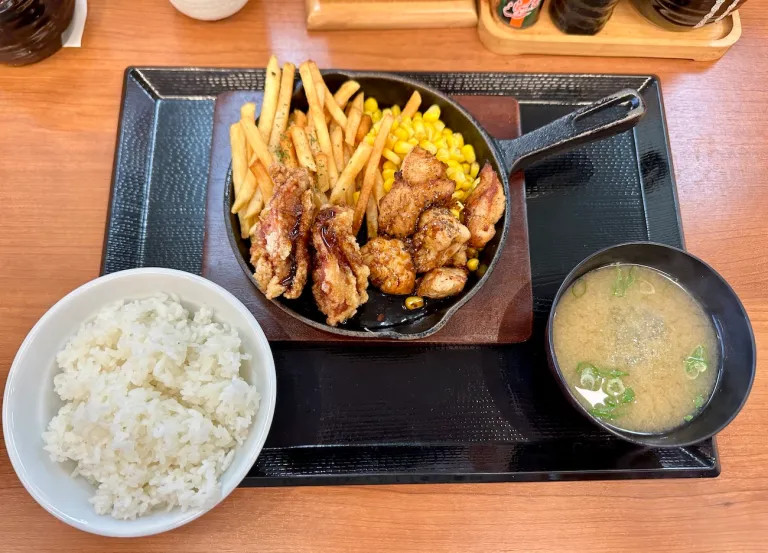
It was a new, limited-time-only menu item just introduced on July 21, and it seemed like the perfect meaty dish for a hot summer’s day. It also came with rice and miso soup. Seeing it, Masanuki had a strange visual of a young cowboy coming to stay at his family’s farm, though said cowboy would probably be trying miso soup for the first time, and possibly be baffled by it.
▼ Speaking of which, the miso soup was unusual in its own right.

▼ It contained shredded konbu kelp!
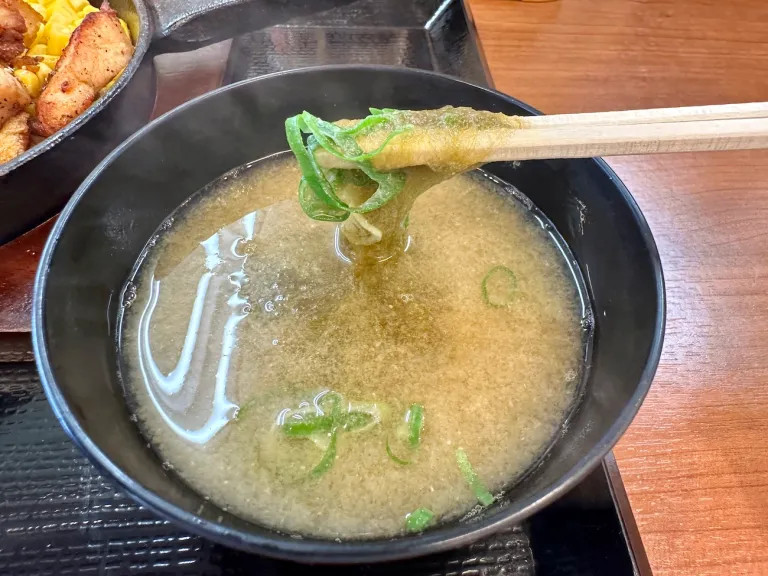
Most chain restaurants serve basic miso soup with tofu or wakame seaweed, but this miso soup was full of thick and viscous konbu. It would be shocking enough for a native Japanese diner, never mind a cowboy eating miso soup for the first time.
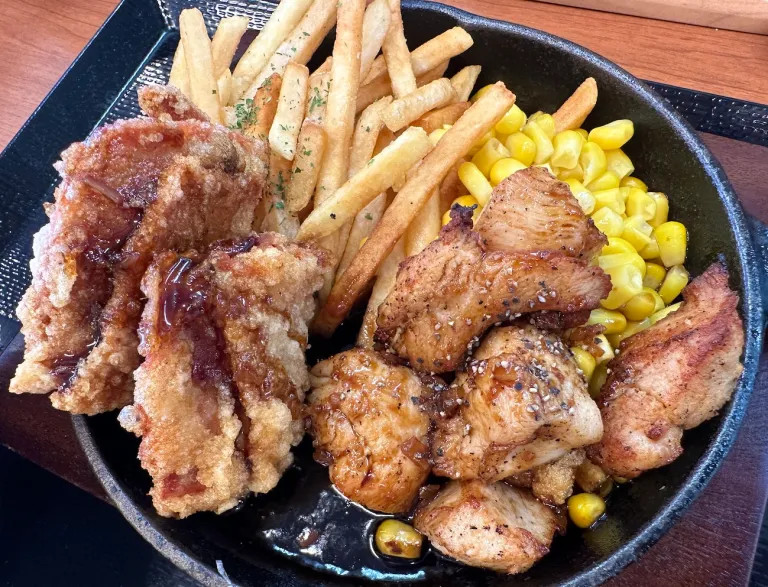
Anyway, the components of the Texas Mori were, according to the menu, two pieces of crispy-fried chicken thigh karaage, multiple thick cuts of grilled chicken breast, a mountain of French fries, and sweet corn. To add to the appeal, the meat was dressed in a “Garlic Texas Steak Sauce,” which is presumably where the Texas influence comes from (besides the portion size), and a thick sauce made from garlic, butter and soy. It was the type of dish to zap Masanuki’s appetite into overdrive.

Even so, it was a pretty ridiculous plate. Masanuki had never seen such a huge serving of French fries and corn, at least not in Japan. What he could only assume would be American-sized karaage (if America had a culture of eating karaage) was doused in garlic butter soy sauce, giving it a ridiculous flavor punch. The juicy grilled chicken breast pieces were also insanely delicious.
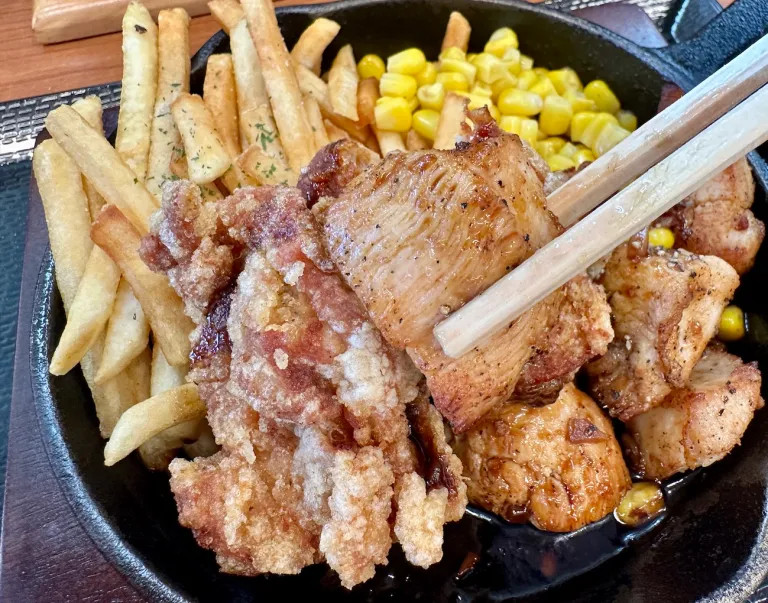
It was an extremely rich meal which made Masanuki glad he’d ordered a large rice (which came free for him, though at some branches it costs an extra 33 yen). Hoping for some pickled vegetables or something to cleanse his palate with, Masanuki explored some of the condiments lined up along the counter until he found a jar that looked promising.
▼ But what was inside was not vegetables but squid shiokara–salted, fermented paste made with squid!
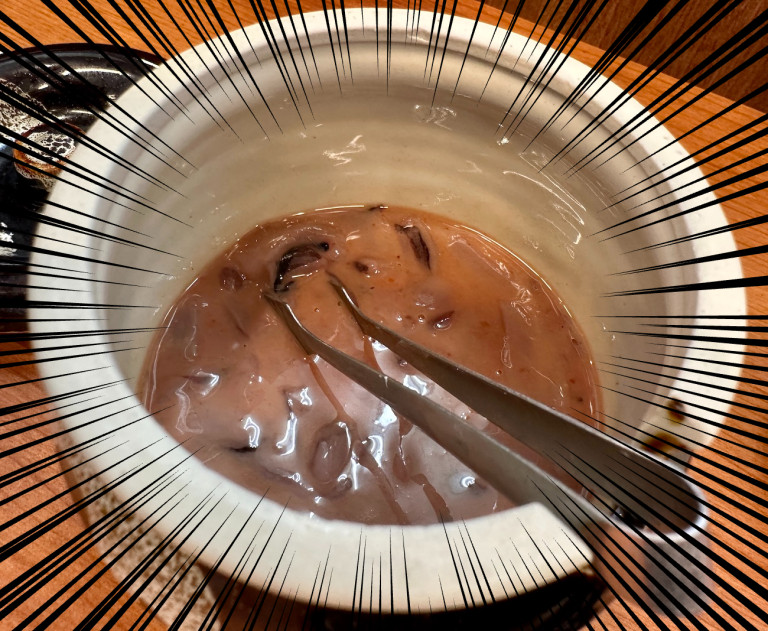
Masanuki didn’t expect to see such a thing at Karayama, but he did not mind in the least. It was extremely tasty–so tasty, in fact, that Masanuki no longer cared about the poor, lost cowboy in his vision, who would surely be confused by the idea of fermented squid. The karaage with a punch, the huge serving of fries, and the squid shiokara had helped him achieve max satisfaction beyond his wildest imagination.
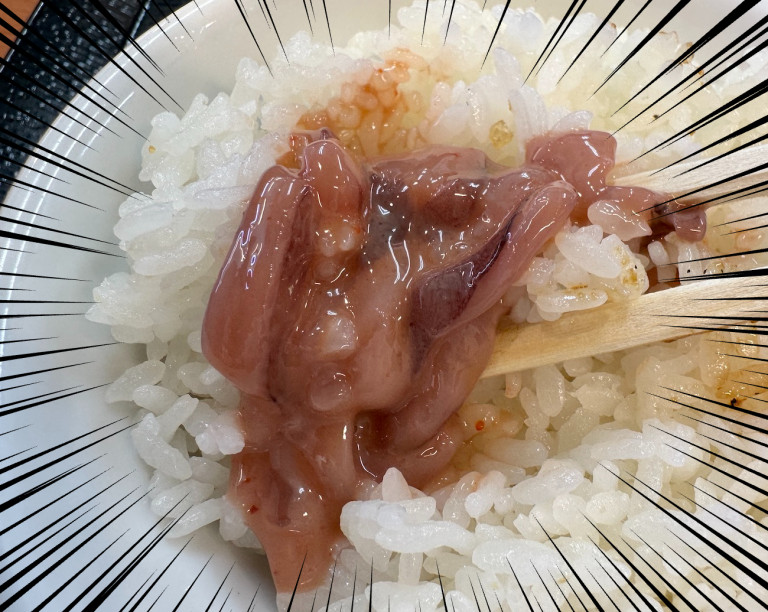
Even though the main attraction was the Texas Mori, Masanuki had to admit that the squid shiokara was the highlight of his visit. To be able to eat it at a casual karaage specialty shop was a joy well worth discovering–in fact, his best discovery of the season, if he were to be honest.
Of course, since shiokara is one of those foods that might not appeal to people who didn’t grow up eating it, this may not be the main draw for you. And that’s okay–you can leave it hiding in its little ceramic jar while you indulge in a pile of crispy fried chicken dressed in a rich garlicky sauce. If that sounds good to you, definitely head over to a Karayama near you and give it try, especially since the Texas Mori will only be around for a limited time!
Related: Karayama Store Locations
Images © SoraNews24
● Want to hear about SoraNews24’s latest articles as soon as they’re published? Follow us on Facebook and Twitter!
Credit:

0 comments:
Post a Comment